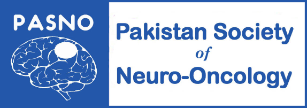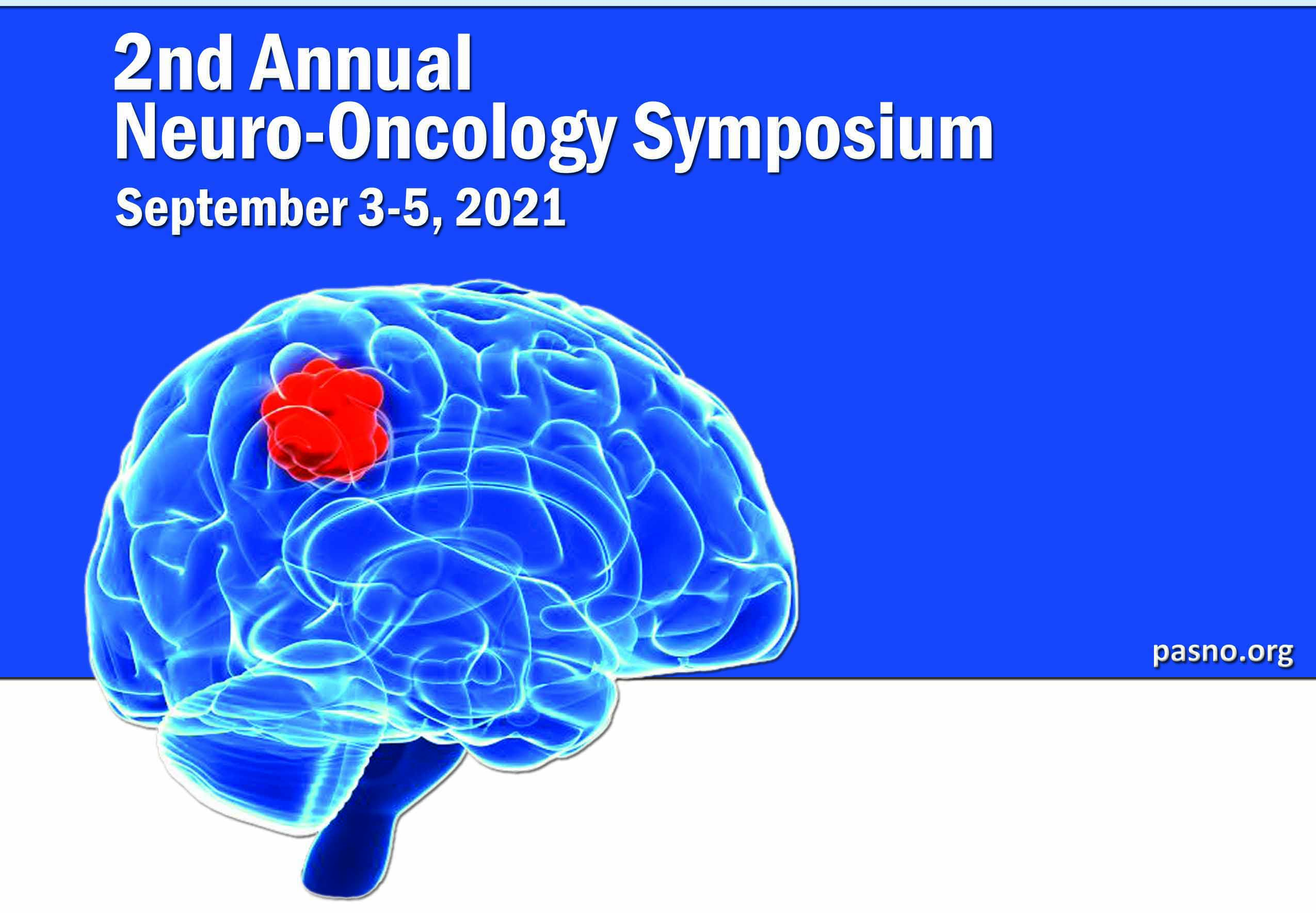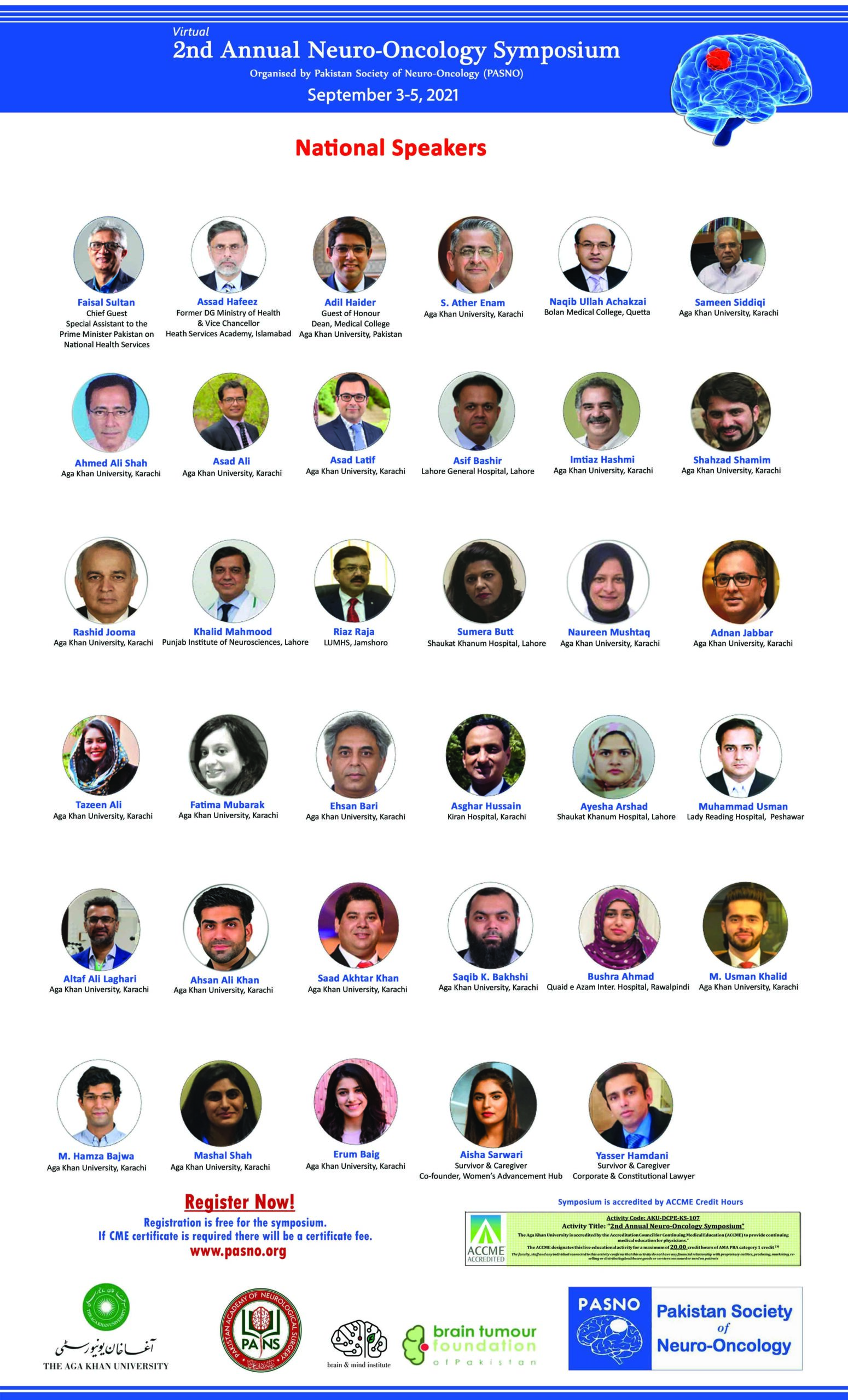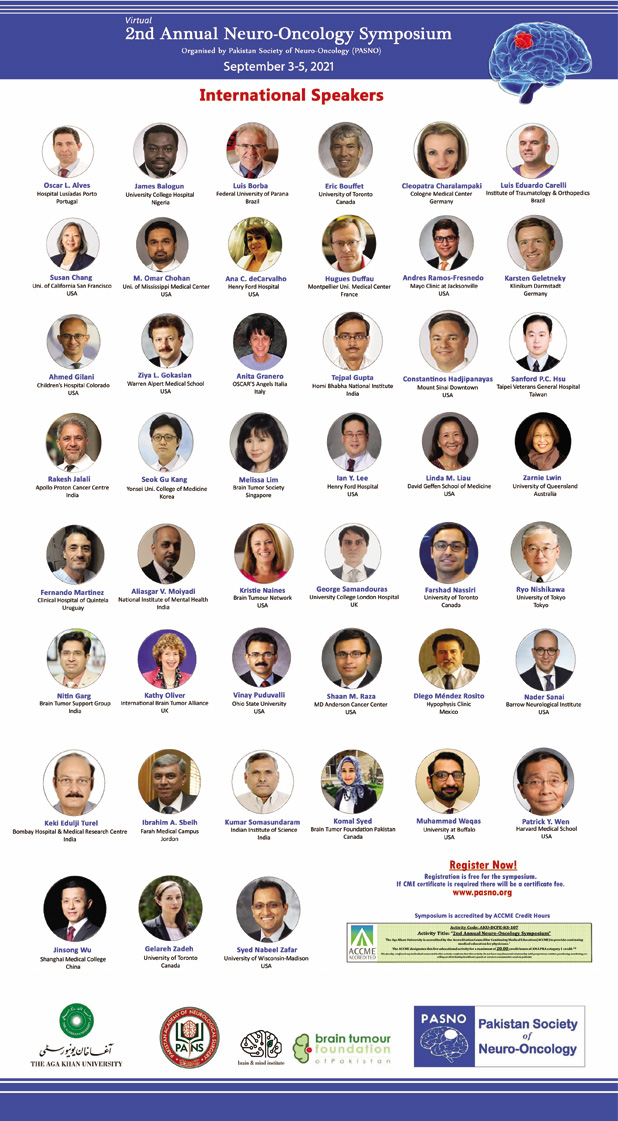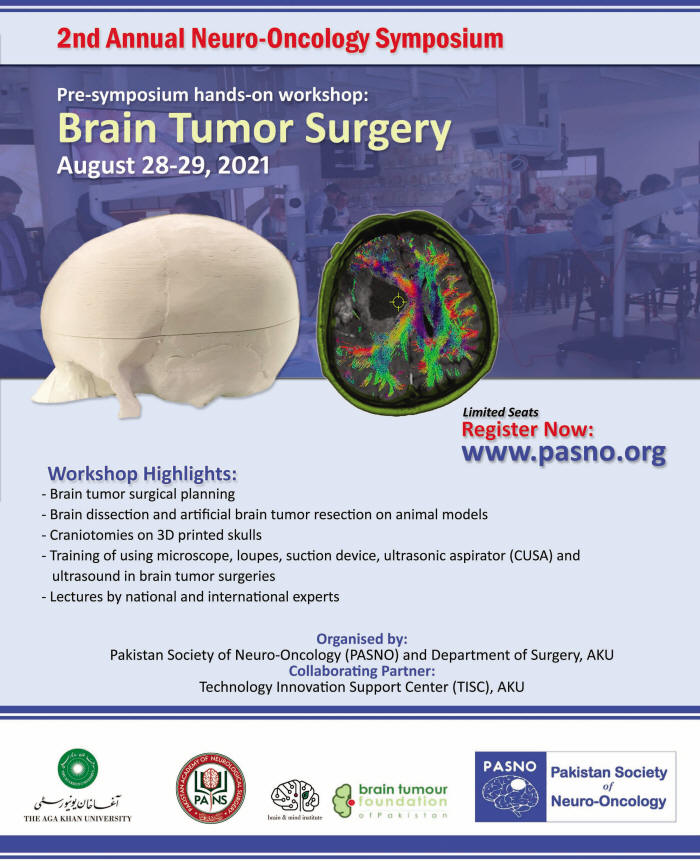September 3 to 5, 2021
The 2nd Annual Neuro-Oncology Symposium (2ANOS) was held on September 3 to 5, 2021, organized by the Pakistan Society of Neuro-Oncology (PASNO) in collaboration with the Department of Surgery, Aga Khan University Karachi, Pakistan, and the Brain Tumor Foundation of Pakistan.
The Inauguration Ceremony of the conference was held on Sunday, September 5, 2021. The Dean of the Medical College, AKU, Dr. Adil Haider, was the Guest of Honor. Dr. Faisal Sultan, Special Assistant to the Prime Minister of Pakistan on National Health Services, was the Chief Guest of this conference. Prof. Naqib Ullah Achakzai, President of the Pakistan Society of Neurosurgeons, was invited as patron of the symposium. Dr. Zarnie Lwin, Senior Medical Oncologist from the University of Queensland, Australia, was the keynote speaker. Her presentation was on “Covid-19 and the Brain Tumor Care Workforce: Perspectives from Queensland, Australia”.
This Annual Neuro-Oncology Symposium was dedicated to research, innovations, capacity-building, and developing collaborations in the field of Neuro-Oncology. The conference had 45 international speakers from 17 countries representing all the world’s continents and 35 national speakers. Close to 2000 diverse virtual participants registered for 2ANOS from across the globe, particularly Latin America, Middle East, South Asia, Southeast Asia, Europe, and North America. On average, 400 to 600 participants from all across the globe attended each session daily.
An innovative and highly successful pre-conference workshop was conducted on August 28-29, 2021, in collaboration with the Technology Innovation Support Center at Aga Khan University. The workshop was a hybrid of virtual and physical sessions. It featured lectures by national and international experts, demonstration of microsurgical techniques, and hands-on practice on animal brains and 3D printed skulls. Workshop participants (neurosurgery trainees and consultants from across the country) practiced different craniotomies on 3D models, removal of artificial brain tumors using microscopes, loupes, suction device, and ultrasonic aspirator on animal brains.
The conference started with a free paper session for presentations on current research. A multi-disciplinary neuro-oncology tumor board was held with invited experts from across the world discussing management and advancements in treatment modalities. Further sessions were held on research in meningiomas, spine oncology, precision-medicine and innovations, and global neuro-oncology. We also showcased our Neuro-Oncology Webinar Series (NOWS) and held a “Students Session” for presentations by medical students. The last session of the conference was on clinical trials, with a panel discussion on “How to develop clinical trials in LMICs.” The discussion was particularly significant regarding developing research capacity in resource-constrained settings and how translational research can be brought from bench to bedside in neuro-oncology. The speakers gave insights into establishing clinical trials in neuro-oncology for LMICs and the importance of such research in the scientific community.
A special session was held to discuss the Pakistan Brain Tumor Epidemiology Study (PBTES) findings, the country’s first epidemiological survey of brain tumors. This session was chaired by Dr. Assad Hafeez, former Director-General of the Federal Ministry of National Health Services. It featured various talks and a panel discussion on “LMIC perspectives and the way forward.”
The session dedicated to ‘Patient-Centric Care’ was held with seven notable speakers from global patient organizations and a Brain Tumour survivor and caregiver from Pakistan. Kathy Oliver, Chair and Co-Founding Director of International Brain Tumour Alliance (IBTA), shared the Art of Brain Tumour Advocacy. Dr. Susan Chang, Professor of Neurological Surgery at the University of California San Francisco, highlighted the concept of Survivorship – surviving, thriving, and living well. Dr. Nitin Garg, Founding Director, Brain Tumour Support Group and Awareness Foundation India, and Komal Syed, Founder, Brain Tumour Foundation of Pakistan, chaired and co-chaired the session.
2ANOS was an exceedingly successful event, building upon the tradition that started with 1ANOS last year. By bringing neuro-oncology world leaders in annual symposia and by building collaborations with neuro-oncologists across the world, PASNO aims to improve brain tumor patients’ care and facilitate research in neuro-oncology in a resource-limited setting.
Venue: It was a virtual event | Live stream

Brain Tumor Surgery Workshop
The Pakistan Society of Neuro-Oncology (PASNO) and the Department of Surgery at the Aga Khan University Hospital conducted a pre-symposium (2ANOS) brain tumor surgery workshop on August 28-29, 2021, in collaboration with Technology Innovation Support Center at the Aga Khan University. It was Pakistan´s first-ever brain tumor surgery workshop. In this workshop, participants (neurosurgery trainees and consultants) joined from the whole country. This workshop featured lectures by national and international experts, demonstration of microsurgical techniques, and hands-on practice on animal brains and 3D printed skulls. In this event, participants practiced different craniotomies on 3D models, removing artificial brain tumors using microsurgical techniques while utilizing microscopes, loupes, suction device, and ultrasonic aspirator on animal brains. Post-workshop feedback by the participants was encouraging, and we plan to organize this workshop twice every year from now on.
Workshop Director:
Dr. S. Ather Enam, S.I.
Professor of Neurosurgery
Chair, Department of Surgery
Aga Khan University, Karachi, Pakistan
President, Pakistan Society of Neuro-Oncology
Workshop Chairman:
Dr. Ahsan Ali Khan
Fellow, Surgical Neuro-Oncology
Aga Khan University, Karachi, Pakistan
Member, Pakistan Society of Neuro-Oncology
